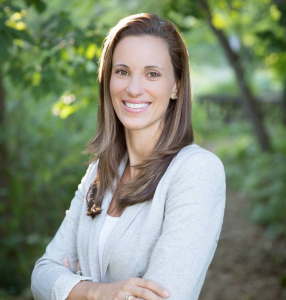
© Fabiana Bacchini
We interviewed Fabiana Bacchini from the parent organisation Canadian Premature Babies Foundation (CPBF) on their Virtual Education sessions, which include interviews with experts on topics regarding COVID-19 and prematurity, and their new COVIDCare program which offers two free counselling sessions to new parents in need.
- Exchanging knowledge and sharing experience are always important but even more so in times of COVID-19.
What do you offer to support your parent network in terms of exchange and support in your country?
Fabiana Bacchini: CPBF’s mission is to support and educate families of premature babies every step of the way. We have developed materials with informational and educational content in cooperation with clinicians. They are available for free on our website and include podcasts, webinars, written booklets, etc. For many years, we have provided microgrants for hospitals to run peer support groups and in person education sessions. CPBF also operates the largest peer support group in Canada; a private Facebook group for NICU parents, the Canadian Preemie Parent Support Network.
Since the beginning of the pandemic, all hospitals suspended their group activities and CPBF decided to continue to educate and provide support online.
Education:
Twice a week, we provide 30-minute live sessions on Facebook, where we interview health care professionals, researchers and former NICU parents, on specific topics, addressing concerns and questions related to COVID-19 and prematurity.
Our live streaming sessions are recorded. We post them on CPBF’s YouTube channel and website.
Once a week, we are providing real time peer support group with a psychotherapist, who is also a preemie parent. She facilitates conversations among current NICU parents and those who have been discharged to home. Once a month, we are offering a Father’s group.
In May, we launched a new program, which name is COVIDCare. We hired psychologists and psychotherapists with experience in maternal mental health to provide two free therapy sessions to families who are either in the NICU or who have been discharged up to 12 months.
- What did it take to practically manage your service?
FB: It takes a lot of dedication, many hours organizing the logistics of each program, volunteers and funding.
For the COVIDCare Program, we applied for grants to initiate and run the program. We created an application form for families to apply, hired the clinicians in order to work with the families (each province has its own regulations so we had to have clinicians in different provinces). A volunteer coordinator organizes the logistics, for example reviews the received family applications, connects families with clinicians, and sends out survey at the end of the two sessions for each participant.
For the Real Time Support Group – we upgraded our ZOOM platform, the psychotherapist schedules the meetings. Our communication team creates the social media posts. This has been a volunteer position, but we just received a small grant to cover the honorarium for the moderator.
Facebook Live – As the host, I connect with all the clinicians and/or parents and interview them during the session; questions are based on parent feedback, interest etc. Through our network of health professionals across Canada and the understanding of the work that they do, I am able to ask them to be guest speakers. Through email contact, speakers are organized, date and time arranged. The day of the “LIVE session”, we log in 15 minutes earlier to go through audio and video, and review the questions before going live.
Pre-session, our communications team get their bios and profile pictures and create social media posts.
Online the private Facebook peer group (Canadian Preemie Parent Network) – we have 10 trained moderators, ex-NICU parents, who monitor the group conversations.
- What should be taken into account by establishing a service as you did?
FB: For a Facebook Live, several things should be considered
- As a host, it’s not about you, it’s about your audience, know who they are.
- Ensure time to prepare and host the sessions. Even if you are confident about a topic, prepare for the interview.
- It is important to be inclusive and ensure diversity, and be sensitive regarding the terminology used.
- Make sure the guests are credible and aligned with the organization values.
- All information given is evidence based and if it’s regarding COVID-19, the evidence is current at the time of the interview.
- Make sure all the resources provided are up to date and evidence based.
When involving parents as guest speakers, have a longer phone interview prior to the live event to make sure they are able to speak about and share their experience in an authentic way.
- What would you recommend other parent organisations in times of COVID-19?
FB: Just like in the NICU, take one day at a time, be flexible and adaptable to changes. Keep networking and open to new possibilities, don’t be afraid to innovate, ask for help, ask for funding.
- Can you share a positive story around the COVID-19 situation? Is there more communication, more close contact?
FB: Our positive story; our team came together really fast to set up the new programs for families across Canada and engage health care professionals and researchers – even working remotely and under a lot of stress and financial pressure. In the beginning, we were concerned about the sustainability of the organization, but through our network, we were able to apply for new grants that became available as we were responding to the crisis created by the COVID-19.
Through our Facebook Live streaming, the diverse group of participating health care professionals and researchers have become aware of the impact of COVID-19 on NICU families during their real time interaction.
We also established new collaboration with corporate partners and other international groups.
Thank you so much for your time and for giving us this interview!
For more information visit: https://www.cpbf-fbpc.org/

